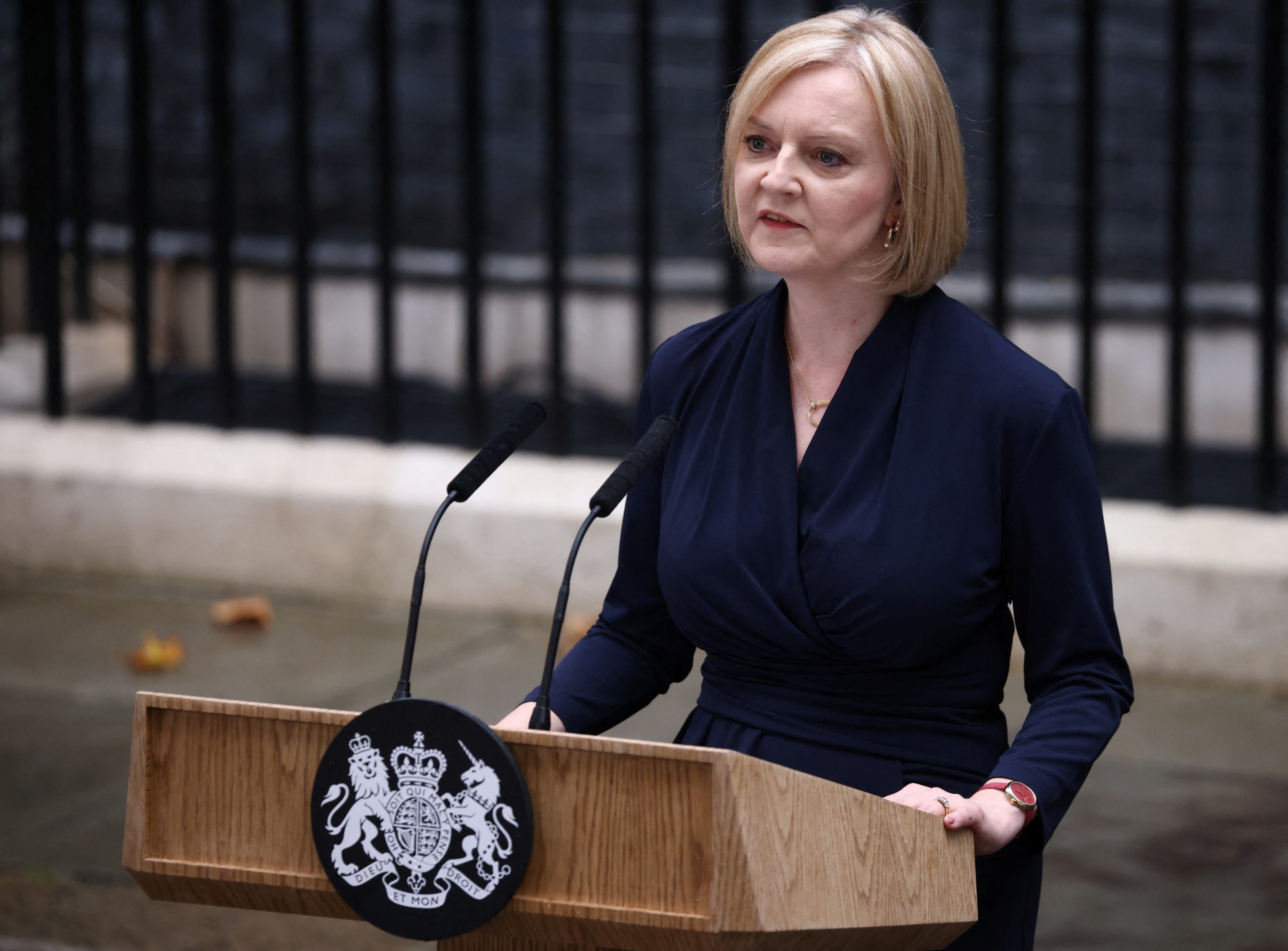
[elfsight_social_share_buttons id=”1″]
Liz Truss took over as British prime minister on Tuesday, vowing immediate action to tackle one of the most daunting sets of challenges for an incoming leader in post-War history led by soaring energy bills, a looming recession, and industrial strife.
Truss, the fourth Conservative prime minister in six years, flew to the royal family’s Scottish home to be asked by Queen Elizabeth to form a government. She replaces Boris Johnson who was forced out after three tumultuous years in power.
“We now face severe global headwinds caused by Russia’s appalling war in Ukraine and the aftermath of COVID,” the 47-year-old former foreign secretary said outside her Downing Street office.
“I am confident that together we can ride out the storm. We can rebuild our economy, and we can become the modern brilliant Britain that I know we can be.”
Truss, who will later announce her government appointments, said she had three priorities: growing the economy through tax cuts, dealing with rising energy costs from this week, and ensuring people got the care they needed from the state-run National Health Service.
However, she inherits an economy in crisis, with inflation at double digits, the cost of energy soaring, and the Bank of England warning of a lengthy recession by the end of this year. Already, workers across the economy have gone on strike.
Her plan to revive growth through tax cuts, while also potentially providing around 100 billion pounds ($116 billion) for energy, has rattled financial markets, prompting investors to dump the pound and government bonds in recent weeks.
Truss has also promised to scrap plans to increase corporation tax on big firms, and to reverse an increase in a payroll tax on workers and employers, designed to raise additional funding for health and social care, with the extra spending coming from general taxation.
British 30-year government bonds suffered their sharpest one-day fall since March 2020 when the COVID-19 pandemic caused turmoil in financial markets, as investors honed in on the extra borrowing Truss’s plans are likely to require.
Ten-year borrowing costs rose to their highest since 2011, but two-year yields fell, with economists noting that an energy price cap would stop inflation from rising in the near term.
“I know that we have what it takes to tackle those challenges. Of course, it won’t be easy, but we can do it,” Truss said.
“I will take action this day and action every day to make it happen. United with our allies, we will stand up for freedom and democracy around the world of recognizing that we can’t have security at home without having security abroad.”
U.S. President Joe Biden was one of the first to congratulate Truss.
“I look forward to deepening the special relationship between our countries and working in close cooperation on global challenges, including continued support for Ukraine as it defends itself against Russian aggression,” he said on Twitter.
Weak hand
The new prime minister will address the latest crises buffeting Britain with a weaker political hand than many of her predecessors.
Having held a place in the cabinet of senior ministers for eight years, she defeated rival Rishi Sunak in a vote of Conservative Party members by a tighter margin than expected, and more of the party’s lawmakers initially backed her rival.
Johnson, who tried to cling on to power in July despite ministers resigning en masse over a series of scandals, told reporters and politicians gathered in Downing Street early on Tuesday that the country must unite.
“It’s time for politics to be over, folks,” he said in his farewell speech. “It’s time for us all to get behind Liz Truss and her team and her program.”
After speaking outside the famous black door, he left London to travel to northeast Scotland and tender his resignation to 96-year-old Queen Elizabeth before Truss followed him into Balmoral Castle to be appointed his successor.
Johnson used his departure speech to boast of his successes, including an early vaccine program during COVID-19 and his staunch support for Ukraine in its battle against Russia.
He also listed “delivering Brexit” as one of his main achievements, although polls now show that a majority of people think leaving the European Union was a mistake.
Britain, under Conservative rule since 2010, has stumbled from crisis to crisis in recent years and there is now the prospect of a long energy emergency that could drain the savings of households and threaten the futures of businesses still weighed down by COVID-era loans.
Household energy bills are due to jump by 80% in October, but a source familiar with the situation has told Reuters that Truss may freeze bills in a plan that could cost towards 100 billion pounds ($115.33 billion), surpassing the COVID-19 furlough scheme.
The scale of the package, plus the fact the energy crisis could run for a couple of years, has spooked investors.
The pound has fared worse against the U.S. dollar than most other major currencies recently.
In August alone sterling shed 4% against the greenback and it marked the worst month for 20-year British government bonds since around 1978, according to records from Refinitiv and the Bank of England.
Britain’s public finances also remain weighed down by the government’s huge coronavirus spending spree. Public debt as a share of economic output is not far off 100%, up from about 80% before the pandemic.
Copyright 2022 Thomson/Reuters
